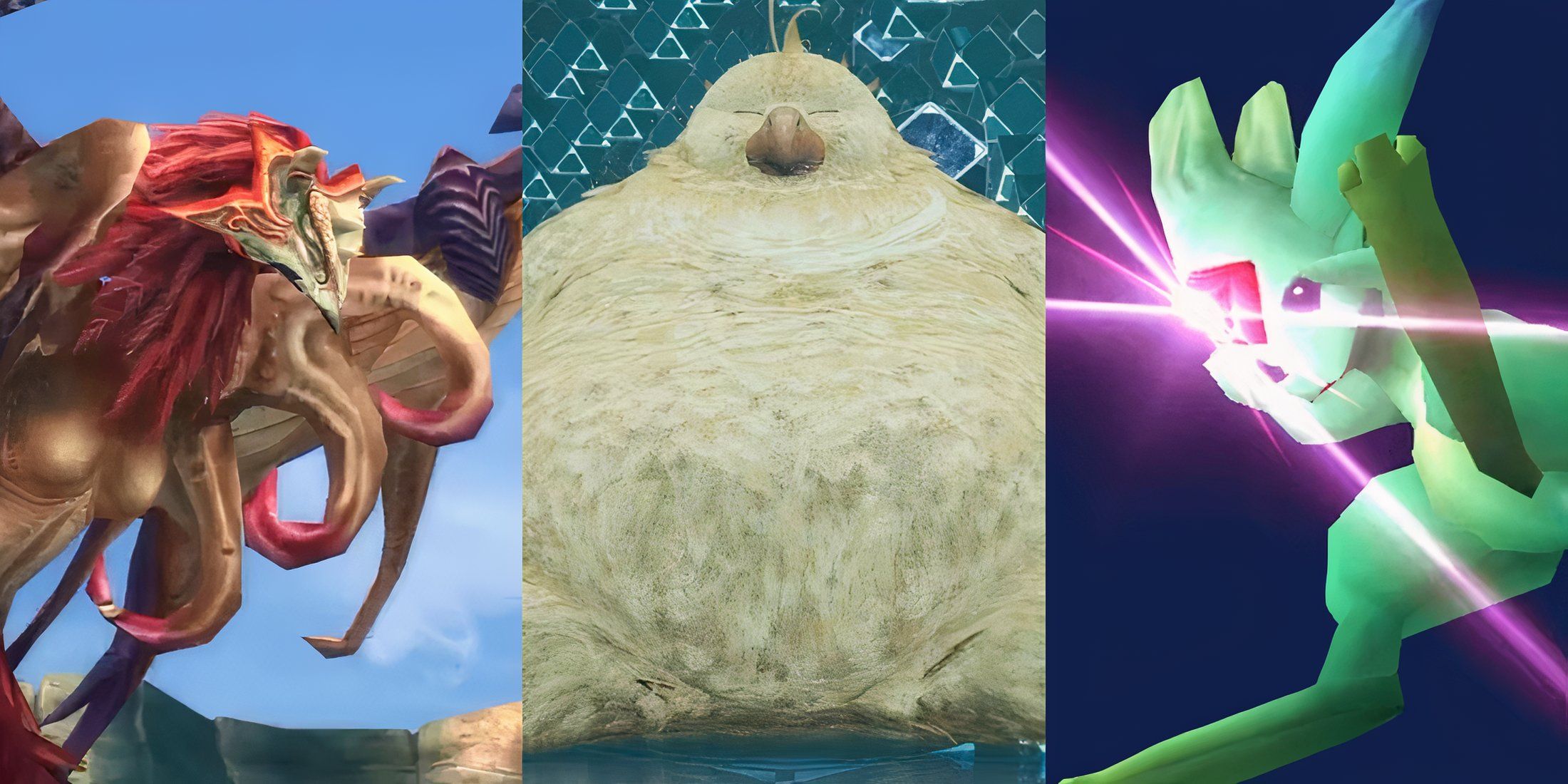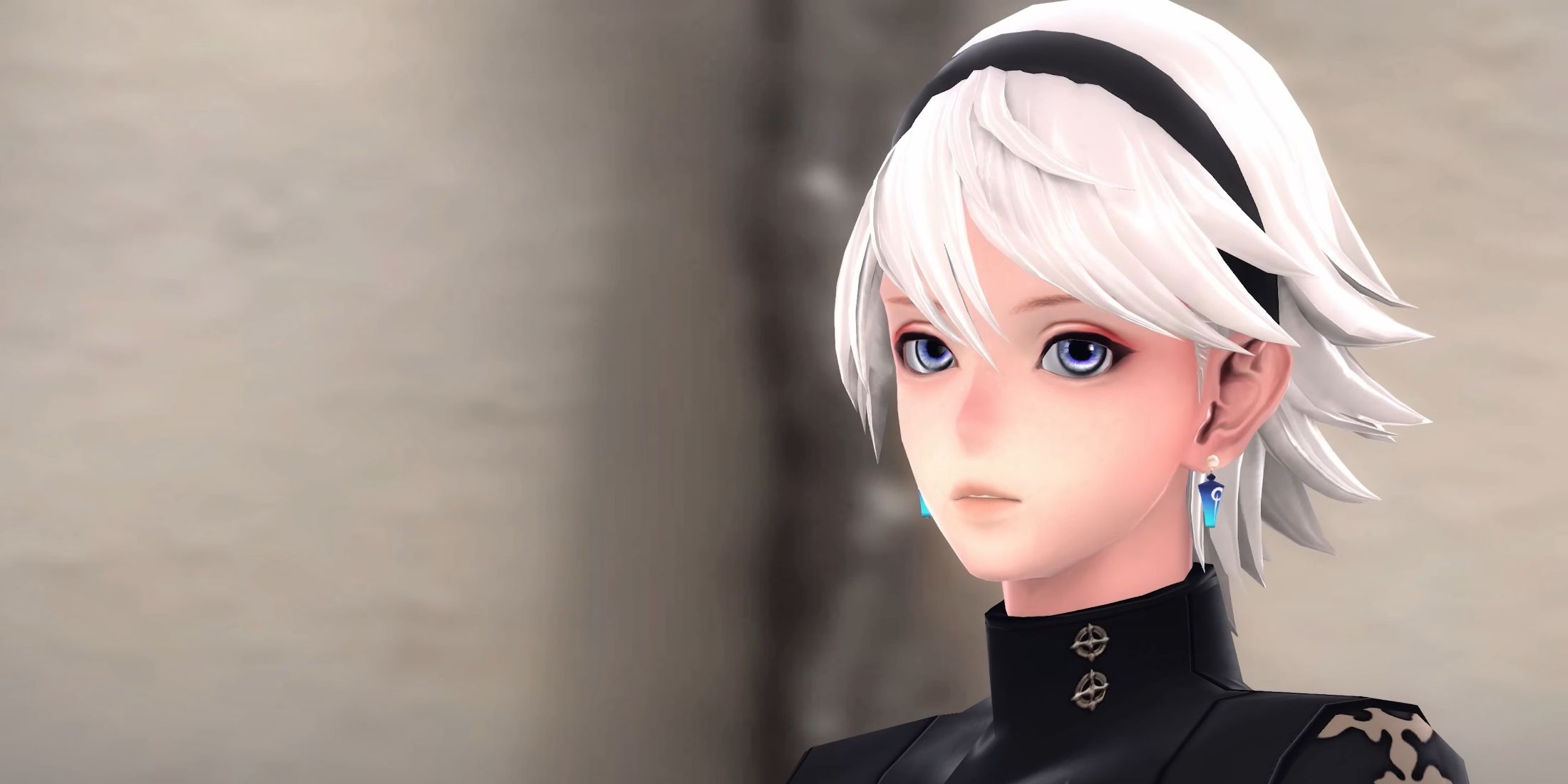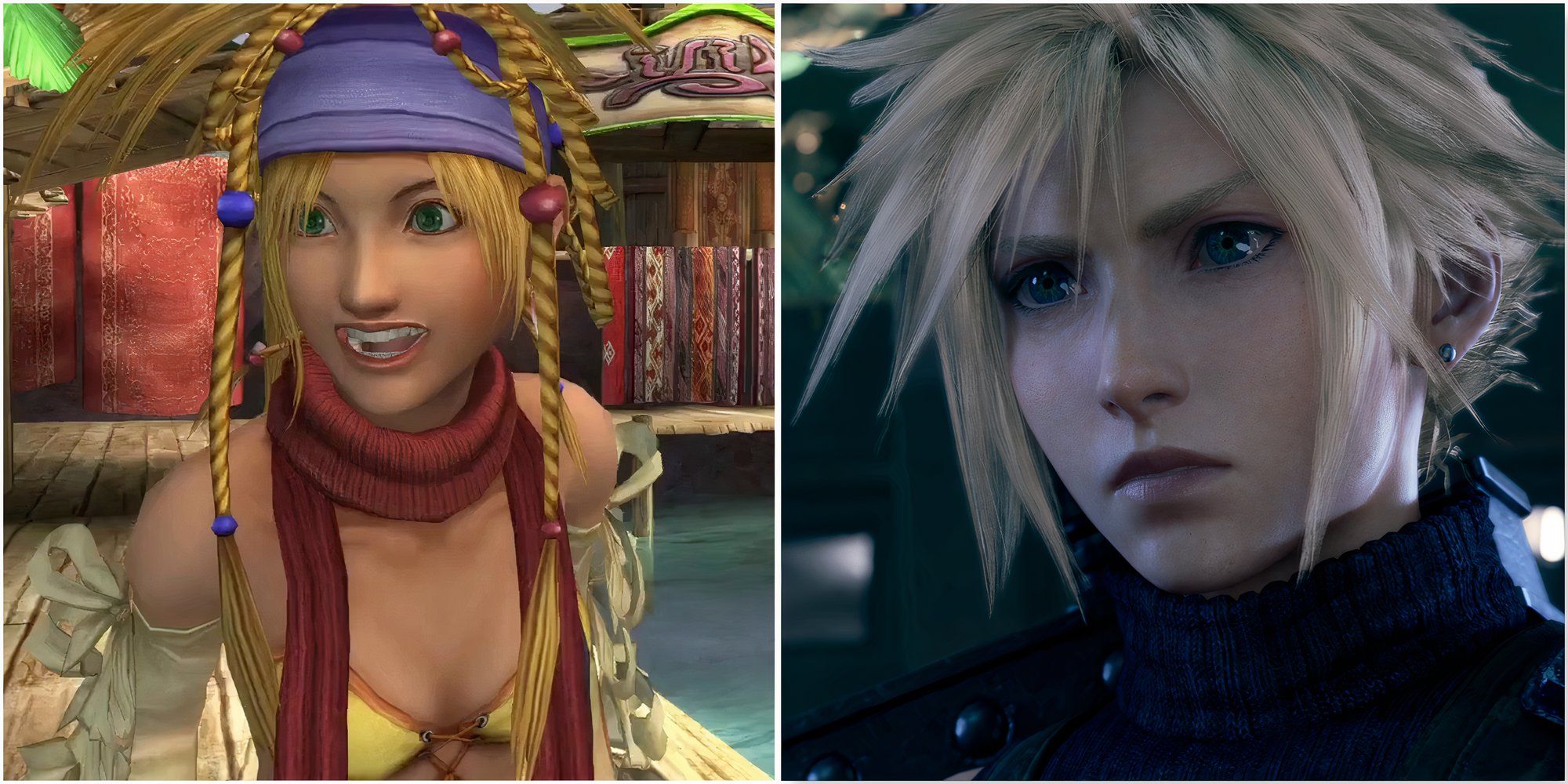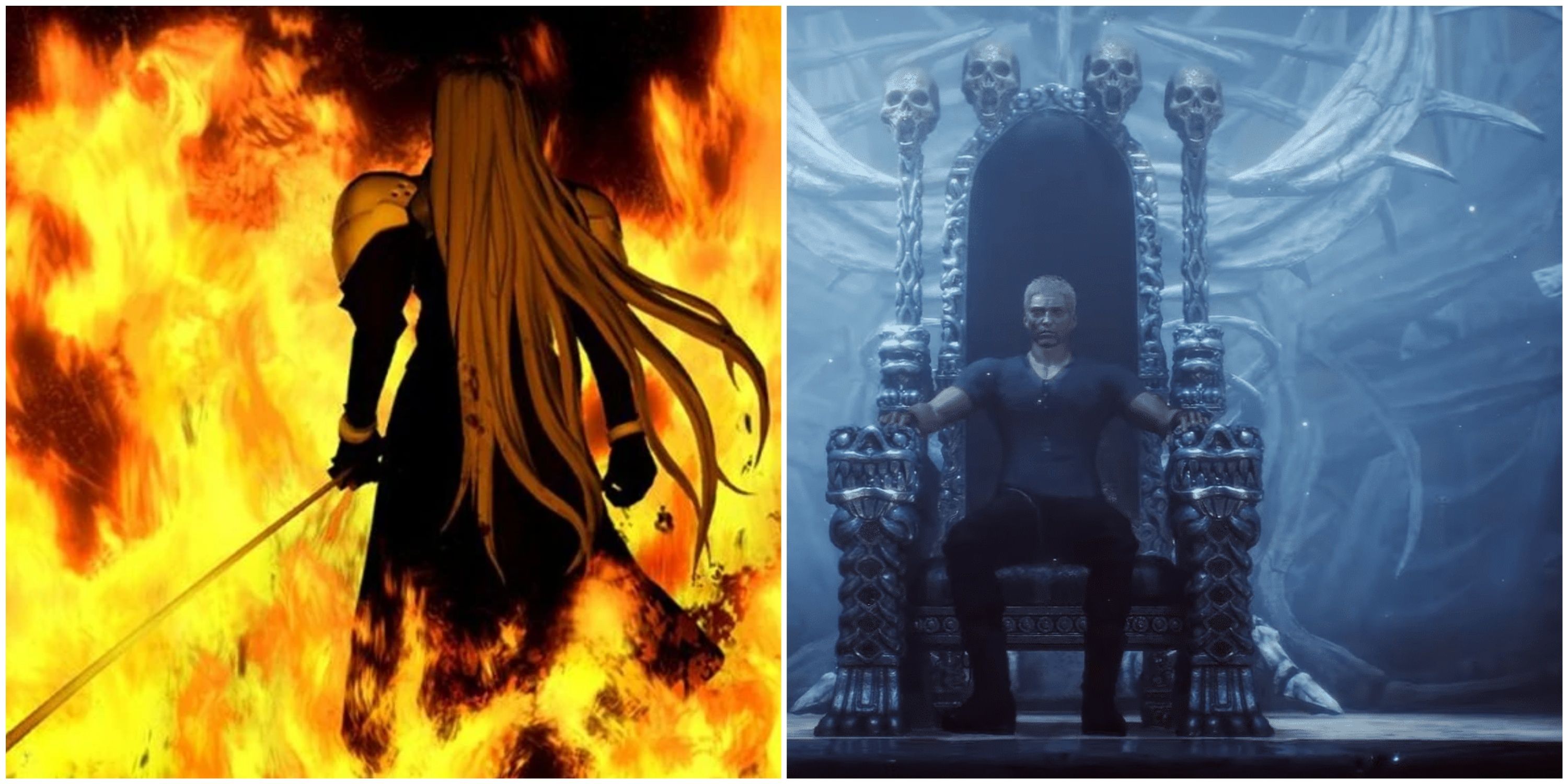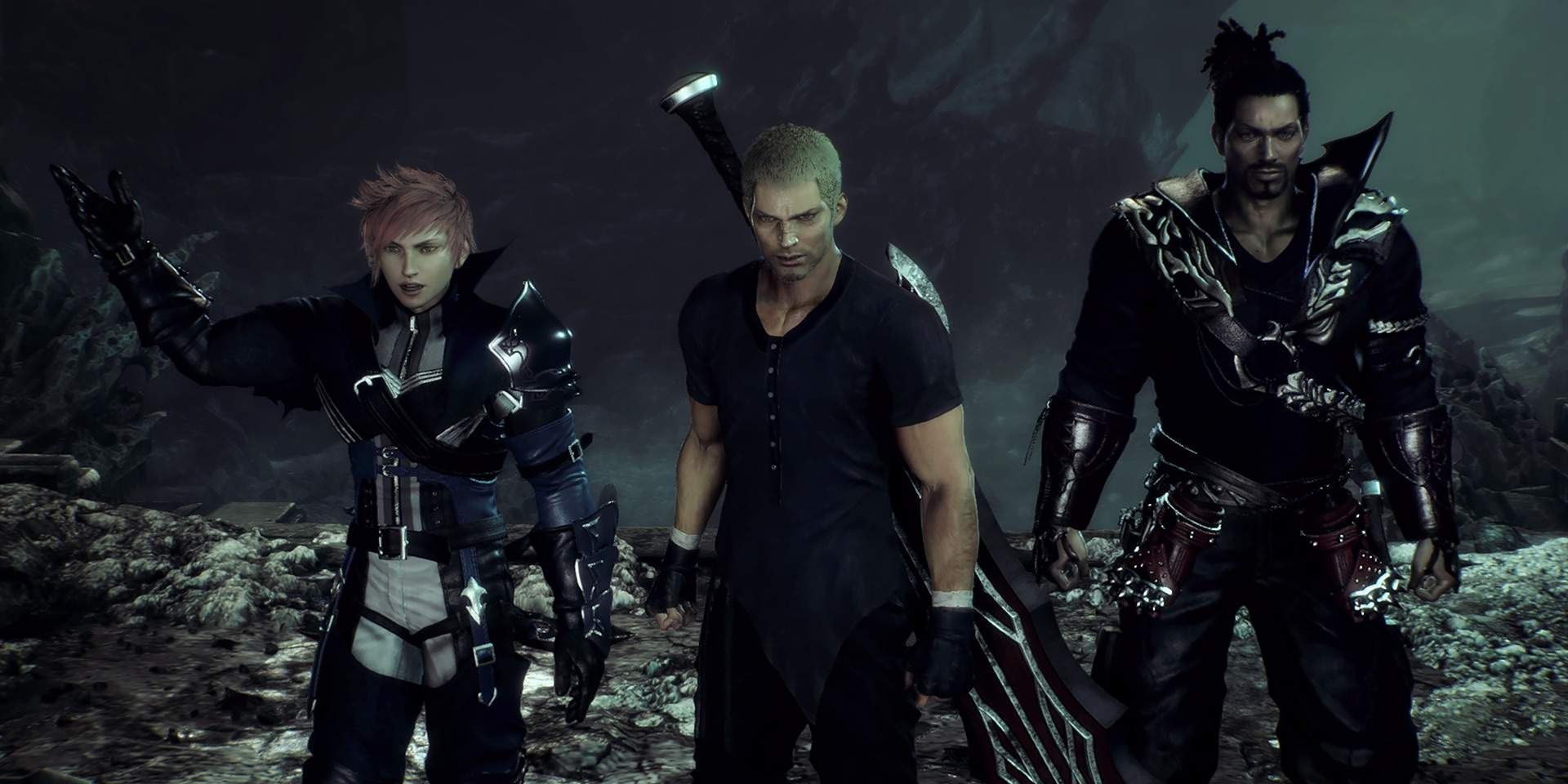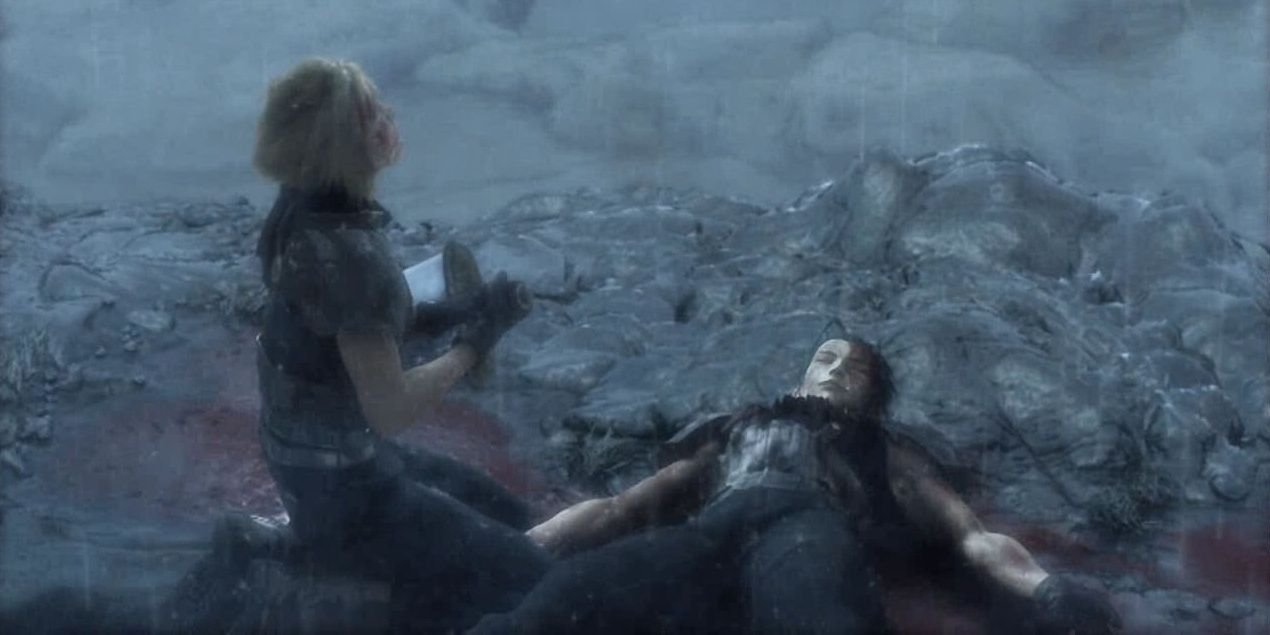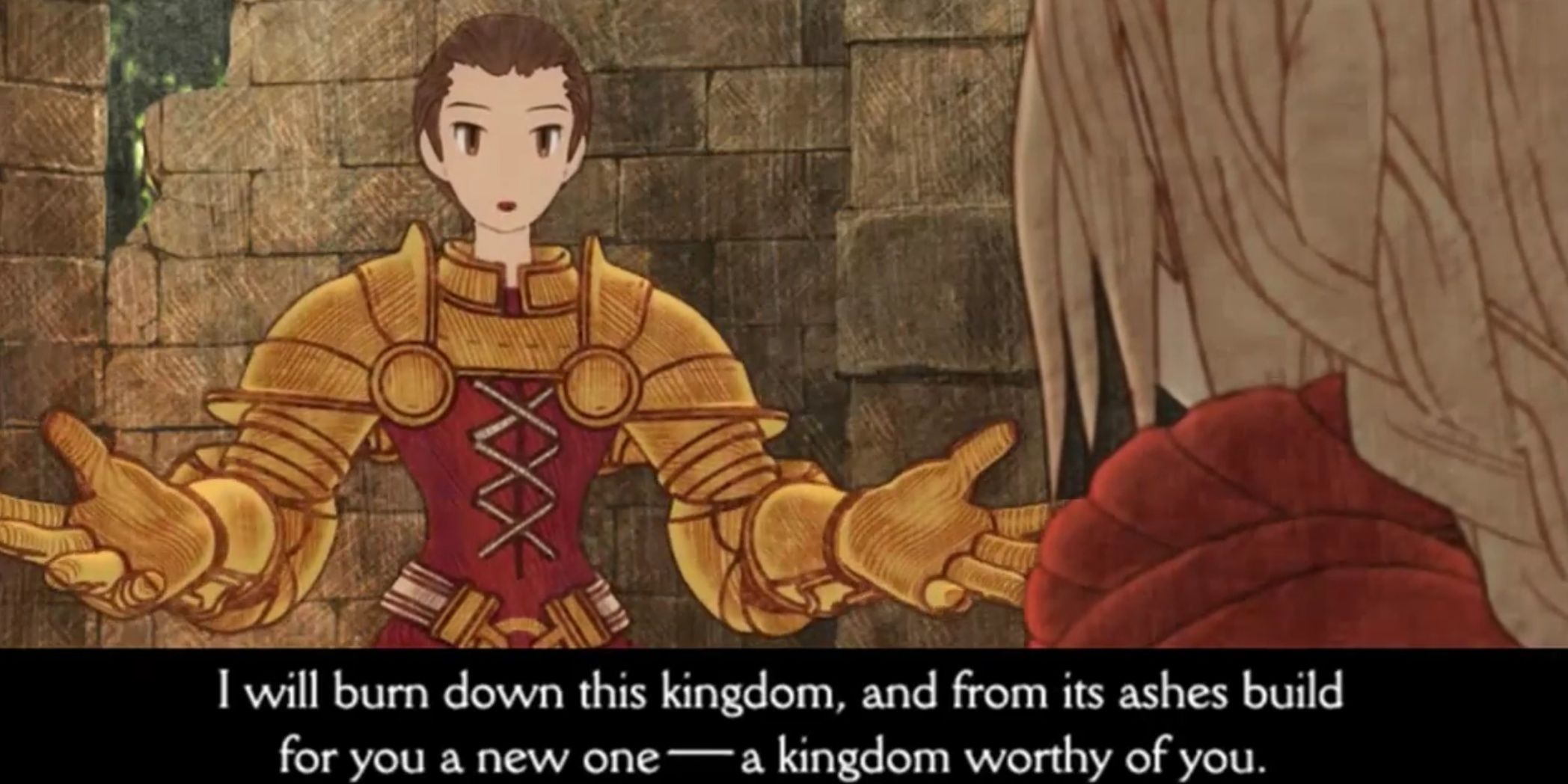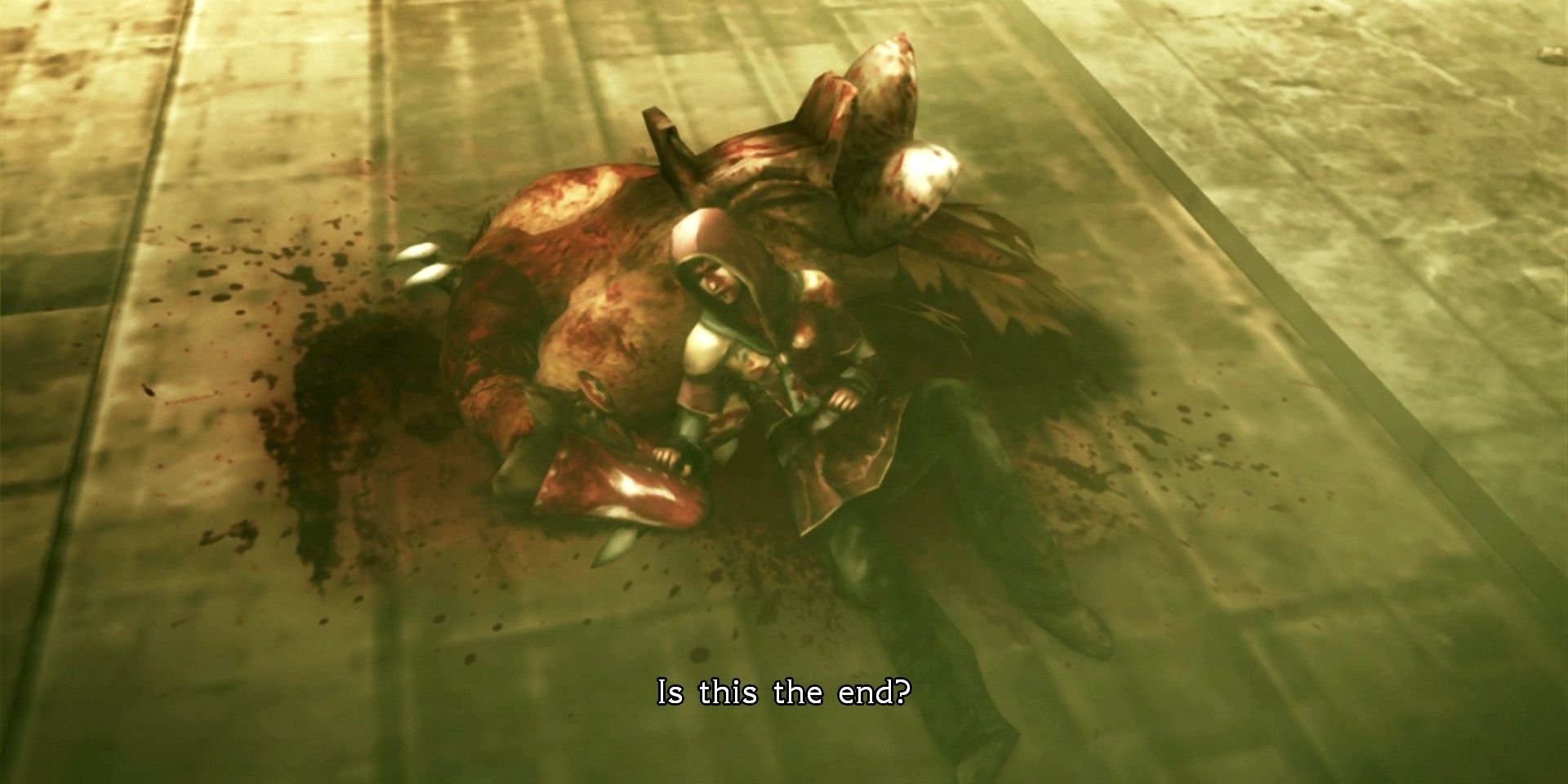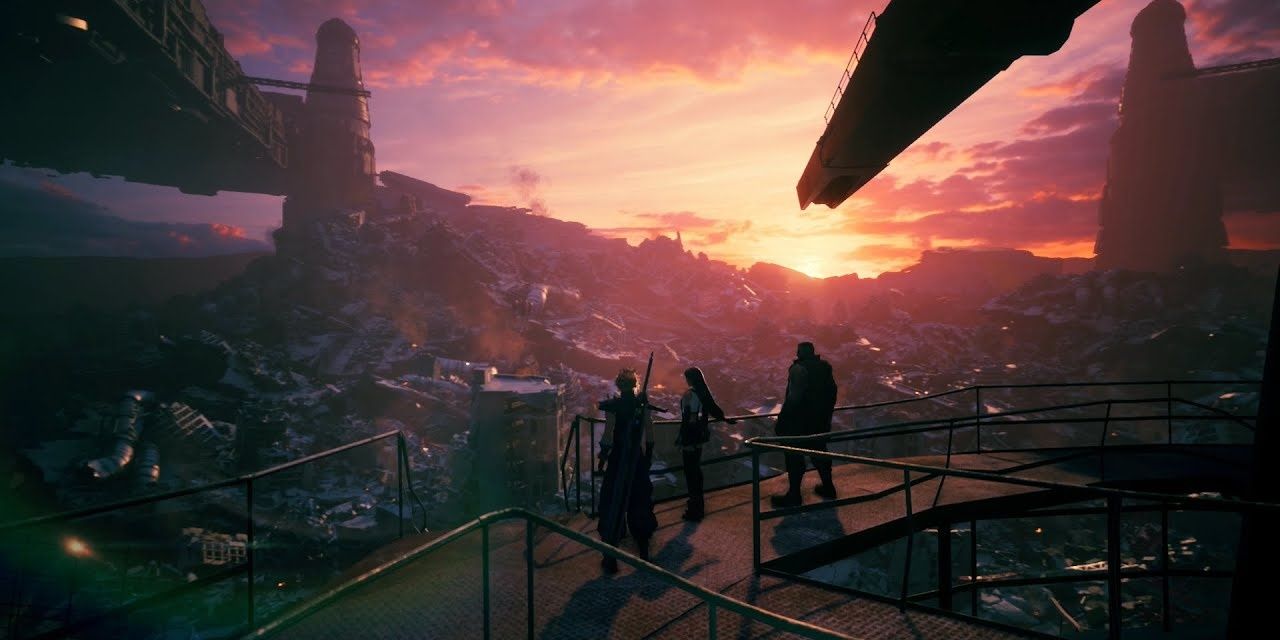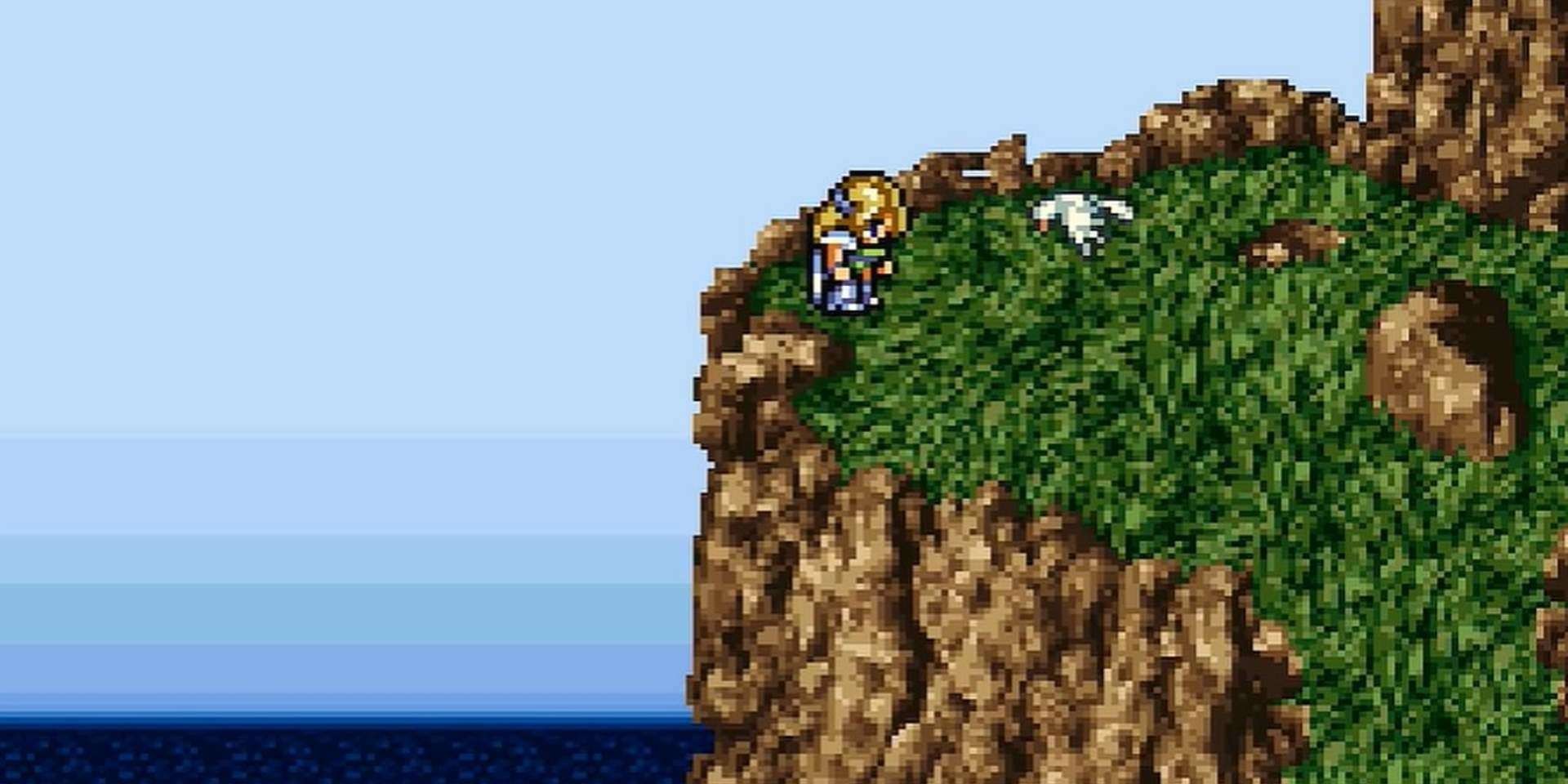Most Final Fantasy games are energetic adventures brimming with quirky Japanese stylings. Not all of them are quite so happy, though. Several entries attempt a darker tone, striving to scare and outright depress their devoted fans.
How Final Fantasy achieves that darkness varies from game to game. The world and characters may be dour enough to sap any excitement. Alternatively, the messages could be more cerebral and mature than players are used to. The stories surrounding these themes can shake fans to their core. That said, such impactful tales are usually the ones most fondly remembered.
6 Stranger Of Paradise: Final Fantasy Origin
This odd duck strives to be the darkest from the start. The story may seem formulaic on paper--a group of heroes set out to stop an evil overlord--but the game's approach is like something out of God of War or Devil May Cry. The gruff protagonist has a searing hatred for his target and no patience for anything else. He's always angry, expressing that rage with scowls and swear words. In the process, he creates a joyless journey that borders on unintentional comedy.
This also causes Stranger of Paradise to fall apart as a prequel. Fans traverse familiar Final Fantasy locales, but they all have the dreary and foreboding aesthetic of a Dark Souls game. Combat in these areas unfolds not in mystical spectacles, but in brutal bloodbaths. Stranger of Paradise tries so hard to be intense, but it leaves little emotion to latch onto as a result.
5 Crisis Core: Final Fantasy 7
This prequel is about legacy, and an unfortunate fact of legacy is the passing of previous generations. Such becomes clear to fans as they experience the tale of Zack Fair. Growing from a plucky upstart to a seasoned SOLDIER, he loses mentors and becomes one himself before finally dying. Players knew it was coming after the snippets seen in Final Fantasy 7, but the personal lens gives it far more pathos.
Being at the end of one's rope is a recurring element in Crisis Core. Characters face cell degradation because of clandestine experiments, and they struggle with how to spend their remaining time. The script may not be the most subtle in conveying this, but the world-building makes up for the writing weaknesses. It offers a brilliant parallel where the heroes of yesterday give way to a less glorious age with no use for them. Obsolescence like this is confronting, but Crisis Core handles it beautifully.
4 Final Fantasy Tactics
This title defies Final Fantasy in many ways, opting for less magical adventure and more grounded warfare with political intrigue. In that, Tactics features class warfare, slaughter, assassination, and betrayal in its plotline. Playing it is akin to acting out a medieval drama.
The creators use that approach to deliver poignant themes about sacrifice and the ends justifying the means. Characters drive themselves apart while pursuing their goals and eventually come to blows. What's more, is that they rarely reach an understanding that doesn't involve violence. These scenarios remain compelling due to the moral ambiguity--preventing players from wholly condemning any party. This writing prowess lends Tactics the maturity to match its methodical gameplay.
3 Final Fantasy Type-0
This offshoot covers some of the same ground as Tactics. It features similar beats of war and international strife. Groups of people (and chocobos) regularly meet with massacre, often at the hands of some military despot. It's all familiar territory on the surface.
What isn't familiar is how disturbingly intimate it is. Type-0 forces its characters to face their own mortality. Not all of them can reckon with their death, as many break down in fear and despair. This makes for several depressing sequences of battle aftermaths and weeping death scenes. These approach the primal fear inherent in any real war, and that existential dread creates an eerie chapter in the Final Fantasy franchise.
2 Final Fantasy 7
Playing God is never a good idea. Final Fantasy 7 revolves around attempts to control nature and how those attempts usually breed corruption. Fans first see it in the Shinra company's corporate greed. The suits construct an oppressive steampunk metropolis subsisting on the planet's lifeblood, and they then wipe out a huge chunk of that city to secure their bottom line.
More affecting is how these events change the characters. The heroes and villains must reevaluate themselves and their roles in the larger conflict, usually in the face of crushing personal loss. Discovering the depths of that damage can have traumatic effects on the body and psyche. That's part of what makes Final Fantasy 7 so engrossing to so many gamers.
1 Final Fantasy 6
FF7 may destroy part of a city, but its predecessor features genocide on a much grander scale. Final Fantasy 6 revolves around the strife between humans and otherworldly beings known as "espers." The former seeks to exploit the latter for magical power. Thus, the evil Gestahlian Empire invades their world, captures several of the mystical creatures, and performs grotesque experiments on them for years on end.
This results in the mad villain using the espers' source magic to destroy the world. The planet becomes a ruin rife with death and decay. The heroes become scattered, each grappling with a sense of crippling failure. This breeds an overpowering atmosphere of utter hopelessness for the latter half of FF6. Amidst this penetrating depression, characters and players alike must find the will to go on. That's easier said than done.

